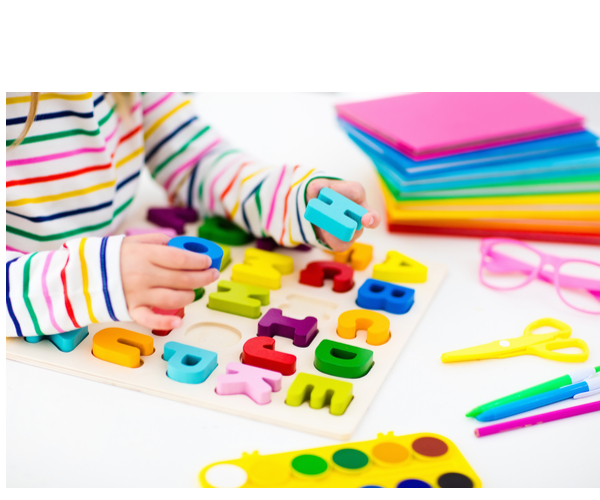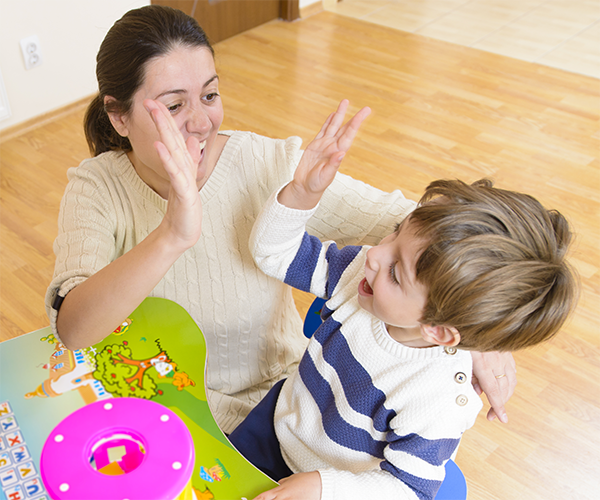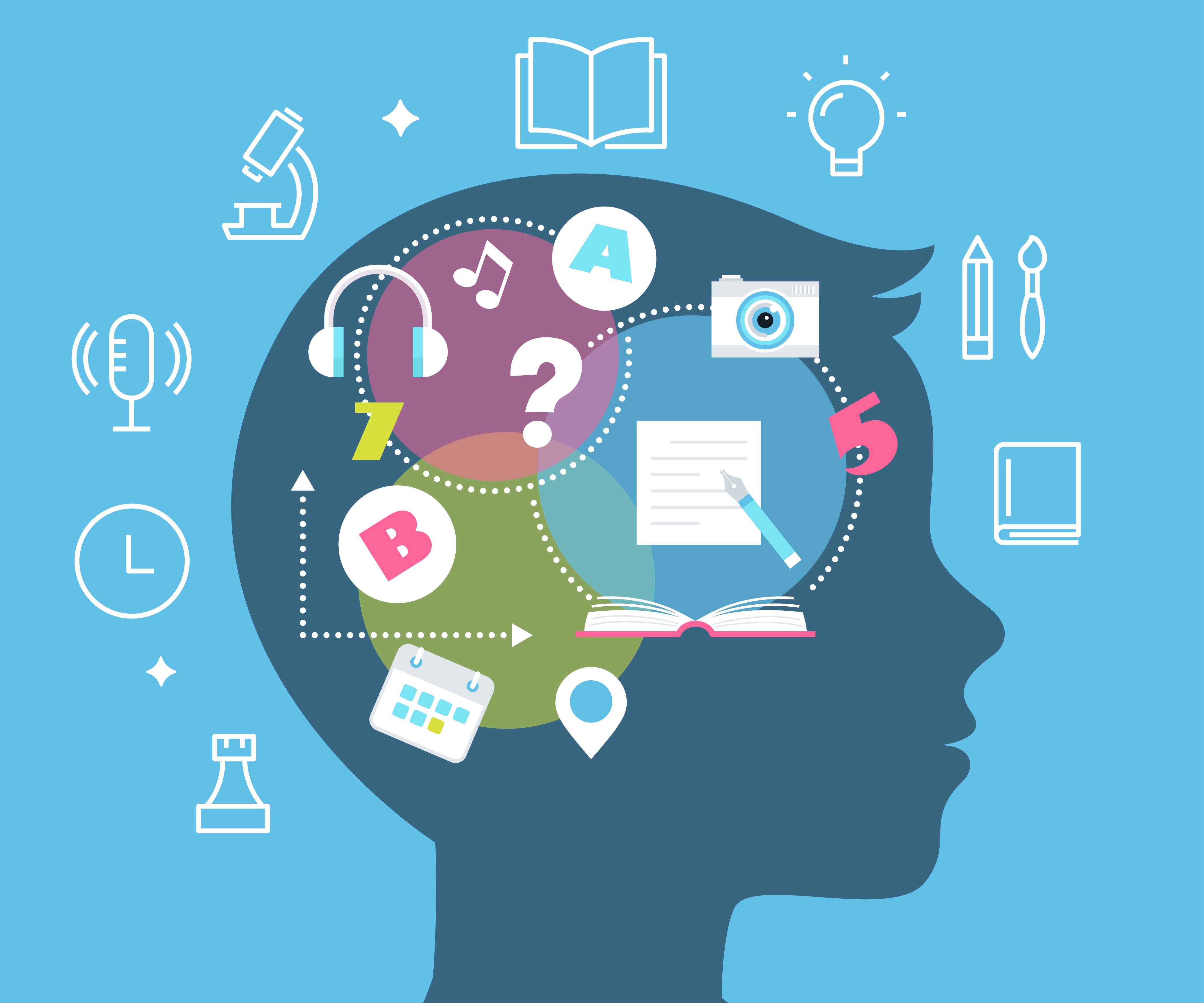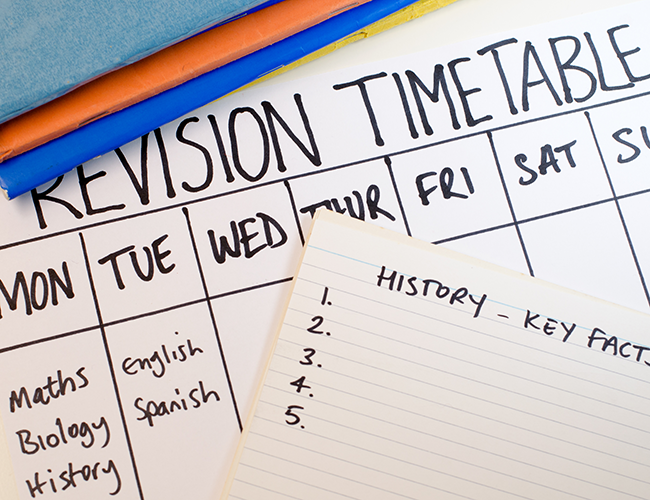- Year 1
- Year 2
- Year 3
- Year 4
- Year 5
- Year 6
- Year 7
- Year 8
- Year 9
- GCSE


EdPlace offers thousands of interactive learning resources from year 1 to GCSE, made accessible for children with SEND. We’re here to help support your child through their learning journey. We understand that finding the type of support your child may need can be daunting.
Mandy, our Head of SEND provides a generalised overview on some of the most common questions when it comes to supporting your child’s education.
Please note: It’s important to remember that each diagnosis is unique to the individual. There are personal, LA and regional differences in diagnostic routes and available interventions.
If you’re concerned your child has symptoms of ADHD, and you wish to pursue a diagnosis, you should seek professional advice from your GP, Health Visitor or SENCo to ensure you’re referred to the correct services in your area.
ADHD is a medical condition affecting concentration, sleep and the ability to self-regulate levels of alertness.
Below are some points as a synopsis of the route to an ADHD diagnosis, from the ADHD Foundation
For more specific and specialist advice and information,visit https://www.adhdfoundation.org.uk
Some behaviour and symptoms that you may see in a child with ADHD:Every individual will have their own unique set of natural abilities, difficulties and experiences within a diagnosis.
Inattentiveness
A child with ADHD/ADD may struggle to stay focused or give enough attention to an activity. Concentration will be reduced and they will lose interest quickly. The child’s memory may be affected, and they may seem to daydream a little more than normal.
Impulsiveness
A child with ADHD/ADD may be more impulsive and have less patience than average. They can hit out, grab or snatch out of frustration. They often won’t wait for permission before doing something and can interrupt conversations as they struggle to wait for their turn.
Hyperactivity
Children with ADHD can get bored easily and can therefore fidget and become restless quickly. Sitting still or being quiet for long periods of time will be extremely difficult. This behaviour can be quite distracting for others, so people with ADHD can become isolated.
ADHD Superpowers
People with ADHD all have their own personal attributes and skills on top of ADHD superpowers, such as energy and creativeness! Ensuring that you don’t get stuck on one topic for too long and encouraging you to think outside of the box.

Additional support
ADHD symptoms can improve with knowledge of the effects of the diagnosis, a healthy diet, exercise regime and decent sleep patterns. As a parent, you can have the biggest impact. Understanding your child and being supportive in accommodating your child’s differences, will improve the quality of your child’s life and help them reach their potential.
EdPlace educational resources support students with ADHD:
Our advice hub gives practical advice, offers simple strategies to help guide activities, and provide information on different talking points relating to Special Educational Needs and Disabilities. Plus we like to throw in a fun SEND focused game or two from time to time - learning can be fun!

EdPlace has been awarded the Smart Award from the British Dyslexia Association! O...

Yoginis - Yoga in Education Why is yoga so good for children with SEND? Studies have found t...

Creating a ‘whole person’ learning opportunity for real-...

Janna White from Funphonics.education and Mandy, Head of SEND gives tips and game ideas to make lear...

ELSA and social skills intervention ideas for school-aged children

How important is it to read body language? Research says that body language makes up an incredible 5...

What is ‘Circle of Friends’? The ‘Circle of Friends’ intervention is aimed p...

We use social skills to communicate and interact with people around us Strong social skills help us ...

How to minimise exam stress for mental well-being Tips from the Charlie Waller Memorial Trus...

What is sensory processing disorder (SPD)? SPD is the difficulty in managing, understanding and regu...

Spelling and reading advice Author: Pat Guy Learning spellings is a standard homework for many prima...

How can we regulate sensory stimulation to create a better environment?

Pre-teaching key words and vocabulary What are words worth? Learning new words and key vocabulary de...

Get a grip - fine motor skills EdPlace looks at a selection of grips available and how they can help...

Why does home education benefit the SEND (Special Educational Needs & Disabilities) child? By Je...

Mobile phone companies create accessibility options for their customers, but m=not many people know ...

Why do some parents choose to homeschool and educate their children? The cross-over with home educat...

Pat Guy author of books such as 'Keeping minds happy and healthy' talks about reading at home with y...

Activities and game to help with fine and gross motor skills

Speech and language fun games to highlight how we can manipulate our speech sounds, to bring awarene...

Accessibility features in our toolbar that ensure our curriculum-aligned activities are inclusive fo...

EdPlace looks at resources and aids to support verbal communication in education.

Easy and simple games to encourage social communication, interaction and skills. Games for children ...

Children with Dyspraxia, Dysgraphia and hypermobility issues will all need regular practice with the...

Fun games to play with small groups of children or with individuals to encourage short term memory s...

EdPlace looks at why social cues matter, particularly for those with social communication difficulti...

What is working or short term memory? How does having a poor memory affect learning? EdPlace discuss...

How does a human brain store information to create a memory? How can I boost my memory? EdPlace give...

Why are more boys diagnosed with special educational needs and disabilities than girls? Is there suc...

SEND recommended reads. Great books for people who are interested in seeing things from a different ...

EdPlace supports schools by offering curriculum aligned interactive English, maths and science works...

Colour vision deficiency can have an impact upon your child’s performance in school or on the sports...

Examples of Idioms with simple explanations and visual representation.

Sometimes it can feel that schools, SEND specialists and other professionals have their own language...

Early intervention for speech and language difficulties is paramount, as the process of referral is ...

Mandy, Head of SEND at EdPlace discusses the purpose and process of an Annual Review.

Choosing a mainstream school, mainstream with a SEND provision or specialist school placement for yo...

Simple and practical 'wins' to help a SEND child in the classroom.

Access Arrangements are pre-examination adjustments for candidates based on evidence of need and nor...

Head of EdPlace SEND, Mandy explains what an EHCP is and how it can help students and parents.

Emotional Literacy Support (ELSA) is an intervention offered by schools as part of the Education Ps...

Help for ESL or EAL students using EdPlace's accessibility toolbar language features. Teachers resou...

Stress-busting ideas to help you through the exam process

These gifts are perfect for all learners, but they're especially suitable for children with addi...

New features now make online learning more accessible for SEND students Today is an exciting day! We...
Access thousands of ADHD friendly resources
"Brilliant. I home educate my son who has autism and this website has made him actually enjoy learning and everyday he is always telling me he can't wait until he sees all his work at 100%, which he is very close in getting after only a month of being on it. Worth every penny, thank you EdPlace." Joanne Holben
"Since using EdPlace I have noticed my son's confidence in maths and English. I am so happy that I found this website and would recommend all parents to use EdPlace for their children." Fay
"Great platform, I saw a dramatic improvement in my son's progress within as little as a month." Ellie Storey
"I am so pleased I came across EdPlace, invaluable, and easy to navigate. Great value for money. A great asset." Jenny H
We're your National Curriculum aligned online education content provider helping each child succeed in English, maths and science from year 1 to GCSE. With an EdPlace account you'll be able to track and measure progress, helping each child achieve their best. We build confidence and attainment by personalising each child's learning at a level that suits them.
Try a sample worksheet



